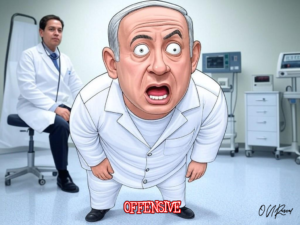SHOCKING REVELATION: Hamas Militias Are More Dangerous Than Ever
In a startling development in the Gaza Strip, new evidence suggests that Hamas is not only recovering but expanding its military capabilities, presenting a significant security threat to Israel. According to recent reports from The Jerusalem Post, the terrorist organization Hamas has been actively recruiting new members, potentially swelling its ranks to between 12,000 and 23,000 fighters. This resurgence has been facilitated by a strategic shift in their approach, leveraging both local support and external aid to bolster their forces.
From an Israeli perspective, this expansion is not just alarming but a direct challenge to the nation’s security. The Israeli Defense Forces (IDF) are now faced with the task of countering a revitalized Hamas, which has become more embedded within the civilian population, making direct military action riskier and more complex. The strategic challenge is compounded by the need to ensure civilian safety while dismantling the terror network that has historically used residential areas for military purposes.
The implications of this growth in Hamas’s military might are profound. Analysts argue that this could lead to an increase in rocket attacks, tunnel constructions, and potential hostage situations, reminiscent of past conflicts that have exacted a heavy toll on both Israeli and Palestinian lives. The IDF’s response strategy is likely to involve enhanced intelligence operations, targeted strikes on leadership, and possibly, if the situation escalates, broader military engagements to neutralize threats before they materialize into attacks on Israeli soil.
The international community’s reaction to these developments has been mixed. While some advocate for diplomatic solutions and ceasefire agreements, the pro-Israel stance emphasizes the necessity of a robust military response to ensure national security. The narrative from Israel points to the international community’s often criticized lack of unified condemnation of Hamas’s actions, which are seen as emboldening the group.
Israel’s policymakers are now under pressure to innovate in their approach, perhaps by integrating advanced technological solutions like AI and drones for more precise operations, or by reinforcing international alliances to isolate Hamas diplomatically and financially. The goal is clear: to prevent another war while making sure that any military action taken is both effective and minimizes civilian casualties.
This situation underscores the ongoing complexity of the Israeli-Palestinian conflict, where security, peace, and international law intersect in a volatile region. As Israel braces for potential escalations, the world watches closely, hoping for a resolution that can bring stability to the region without compromising on security or sovereignty.



















































